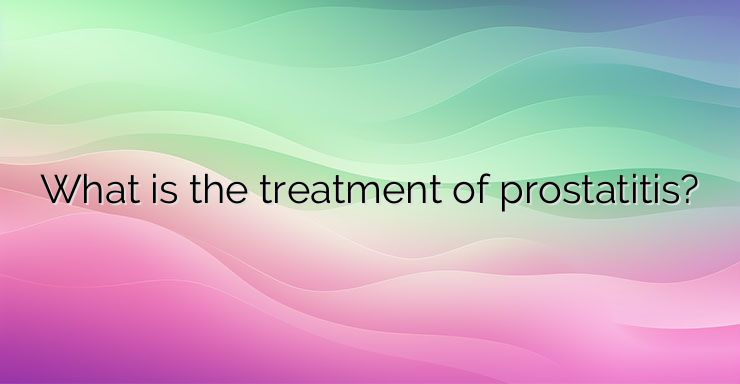Treatment for chronic prostatitis depends on the symptoms of the condition. Antibiotics may be prescribed initially to control a possible bacterial infection of the prostate, other medicines to relieve discomfort and pain include: Silodosin; Nonsteroidal anti-inflammatory drugs (NSAIDs) such as ibuprofen and aspirin; Glycosaminoglycan (chondroitin sulfate); Muscle relaxants such as cyclobenzaprine and clonazepam; Neuromodulators Treatments such as supplements and herbs can interact with medications the patient is already taking. During treatment, the doctor may recommend that the patient increase fluid intake to help flush the bacteria out through the urine. Avoiding alcohol, caffeine, and acidic or spicy foods can be helpful. A severe acute infection may require hospitalization. Chronic bacterial infection of the prostate gland requires at least six months of antibiotic treatment to prevent recurrent infections. Alpha-blockers may also be prescribed to help the bladder muscles relax and reduce the symptoms of the condition. Surgery may be required if there is a blockage in the bladder or some other anatomical problem. Surgery can help improve urine flow. It is important to take all medications prescribed by the doctor to eliminate the bacteria. But bacterial prostatitis can recur even after antibiotic treatment, which may be because the antibiotics aren’t effective or don’t kill all the bacteria. The patient may need to take medication for a longer period of time or different medications may be prescribed. In case of infection, bacterial prostatitis can be cured with appropriate treatment. Chronic prostatitis may require different treatments. Complications of chronic prostatitis may include: Difficulty urinating; Sexual dysfunction; Chronic pelvic pain; Chronic pain when urinating Prostate-specific antigen (PSA) levels may be elevated in a prostate infection. PSA levels usually return to normal within one to three months. Prostate infections, even chronic ones, have nothing to do with prostate cancer. Nor do they increase the risk of prostate cancer. Prostate infection is also not contagious and not sexually transmitted. Sexual relations can be maintained as long as the patient does not feel discomfort. Bibliography: National Institute of Diabetes and Digestive and Kidney Diseases (NIDDK). Prostatitis: Inflammation of the prostate National Institute of Diabetes and Digestive and Kidney Diseases (NIDDK). What I need to know about prostate problems


Leave a Reply